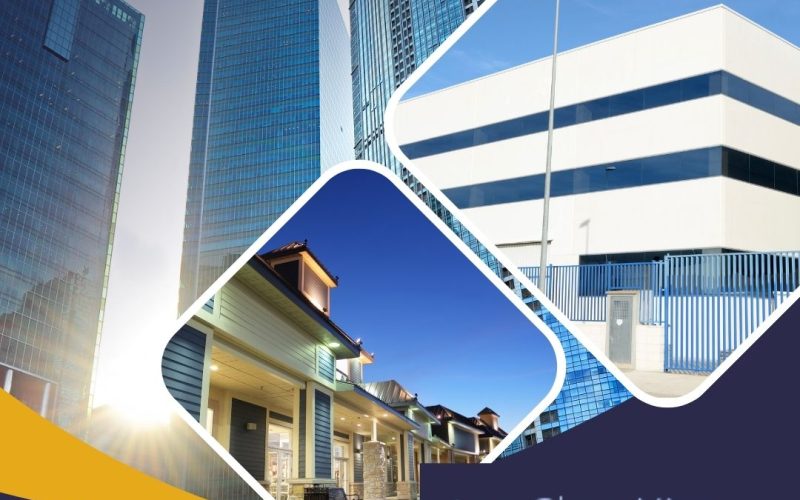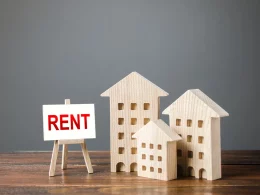Introduction
Singapore is one of the most attractive places in Asia for commercial real estate investment. With its strong economy, stable government, and steady demand for business space, the city has long drawn both local and international investors. But as with any type of property, success comes from careful planning and smart choices.
In this blog, we will look at practical tips for investing in Singapore’s commercial real estate and how to avoid the common mistakes that can affect returns.
Understand the Different Types of Commercial Properties
Before jumping in, it is important to know the types of commercial properties available in Singapore. Some of the common ones include:
- Office spaces: Found in central business districts or suburban hubs.
- Retail shops: Located in malls, mixed-use developments, or shophouses.
- Industrial and warehouses: Often used for logistics, storage, or light manufacturing.
Each type has its own set of tenants, rental yields, and risks. For example, office spaces may provide higher rental income but can be sensitive to changes in the economy. Warehouses, on the other hand, have seen stronger demand thanks to the growth of e-commerce and logistics.
Knowing which sector matches your goals will help you choose wisely.
Why Invest in Singapore Commercial Real Estate?
There are several reasons why investors are turning to Singapore’s commercial real estate sector:
- Stable Political and Legal Environment: Singapore’s transparent legal system and business-friendly policies provide security and protection for investors.
- High Demand for Quality Space: With more global companies setting up in Singapore, demand for modern and efficient commercial spaces continues to rise.
- Attractive Yields: Compared to residential real estate, commercial properties often provide higher rental yields and longer lease terms.
- Strategic Location in Asia: Singapore acts as a business hub for Southeast Asia, attracting multinational companies and start-ups alike.
Key Commercial Property Types in Singapore
Before you invest, it’s important to understand the main types of commercial real estate available:
1. Office Spaces
These are among the most popular commercial investments in Singapore. Prime areas such as Raffles Place, Marina Bay, and Orchard Road continue to attract tenants due to their location and accessibility.
2. Retail Units
Retail properties include shopping malls, street-level shops, and retail podiums in mixed-use buildings. Locations with high foot traffic, such as Orchard Road or Bugis, offer strong potential.
3. Industrial and Warehouse Spaces
Singapore has well-developed industrial parks such as Jurong and Changi. These properties are important for logistics, manufacturing, and e-commerce businesses.
4. Shophouses
Unique to Singapore’s architectural heritage, commercial shophouses offer charm and potential. Many are located in conservation areas and are used for retail, F&B, and offices.
Ang Chee Hian’s Approach to Real Estate Investing
Ang Chee Hian is known in the Singapore real estate scene for his practical, data-driven approach. His strategy combines market understanding, long-term vision, and risk management. Here are some principles inspired by his philosophy:
1. Understand the Location Beyond the Surface
Rather than focusing only on famous locations, Ang encourages investors to study up-and-coming areas that may offer better long-term value due to planned infrastructure, rezoning, or commercial developments.
2. Think Like a Business Owner
When investing in commercial real estate, it’s not just about the building. It’s about how the property performs as a business. Consider who your tenants will be, how much rent you can charge, and what improvements can increase its value.
3. Build Relationships
In real estate, who you know matters. Ang stresses the importance of working with good agents, lawyers, property managers, and consultants who know the local market.
Steps to Investing in Commercial Property in Singapore
Step 1: Define Your Investment Goals
Start by identifying what you want to achieve. Are you looking for steady rental income, capital appreciation, or both? Knowing your goals helps guide your decisions.
Step 2: Set a Budget and Secure Financing
Commercial properties often require a higher initial investment. Be clear about your available capital and explore financing options. Banks may require higher down payments for commercial property compared to residential.
Step 3: Research the Market
Study current property trends, upcoming projects, tenant demand, and government regulations. For instance, areas close to MRT stations or business parks are usually in higher demand.
Step 4: Choose the Right Property Type
Pick a property that fits your goals and risk appetite. For example, an office in the CBD may be expensive but could offer stable returns, while a retail unit in a suburban mall may have a lower entry cost with higher yield potential.
Step 5: Conduct Due Diligence
Before you commit, inspect the property, check the title, look into zoning rules, and understand the lease agreements if it’s tenanted. Due diligence helps you avoid surprises later.
Step 6: Close the Deal
Once you’ve found the right property and completed your checks, engage a lawyer to finalize the transaction. Ensure all documents are in order and you fully understand your rights and responsibilities.
Tips for First-Time Investors
- Start Small: Consider beginning with a smaller unit or joint venture if you’re new to commercial property investing.
- Diversify: Don’t put all your money into one type of commercial property. Spread your investments across different property types and locations.
- Know the Tenancy Laws: Commercial tenancy contracts differ from residential ones. Make sure you understand the lease terms, renewal conditions, and exit clauses.
- Factor in Maintenance and Upkeep: Commercial properties need regular maintenance to attract quality tenants. Budget for ongoing expenses like cleaning, repairs, and property management.
Pay Attention to Lease Tenure
In Singapore, many commercial properties are sold on leases rather than freehold. Some properties come with 99-year leases, but there are also those with only 30 or 60 years left.
The shorter the lease, the more limited your long-term value will be. Banks may also hesitate to finance properties with very short leases. Always check how many years are remaining and consider how this will affect both rental income and resale potential.
Study Location and Accessibility
Location plays a major role in commercial real estate. A shop unit near an MRT station or a busy bus route will usually attract stronger tenant demand compared to one hidden away. Offices in areas with new infrastructure plans often see higher long-term value.
Spend time visiting the property at different hours of the day. Check the flow of people, accessibility for cars and public transport, and whether the area is growing. Tenants are more likely to stay in places that are convenient for their staff and customers.
Focus on Tenant Quality
Reliable tenants are the backbone of successful commercial property investment. Even a prime unit can struggle if the tenant is unstable or unable to pay rent on time.
Before buying, always ask for details about the current tenants. Look at their business stability, rental history, and the length of their lease. Long-term tenants with solid financial standing provide steady income and reduce the risk of vacancies.
Calculate the True Costs
It is easy to get caught up with the purchase price and potential rental income, but ongoing costs must not be ignored. Commercial properties come with service charges, maintenance fees, and sinking fund contributions.
Older buildings may also need more frequent repairs. These costs can add up quickly and reduce your actual returns. Always include them in your calculations before making a purchase decision.
Watch Market Trends
Not all areas of commercial real estate perform equally. In recent years, warehouse and logistics properties have seen strong demand, while some traditional retail spaces have faced challenges.
Look at vacancy rates, rental yields, and upcoming developments in the area. For example, if a large new mall or office building is opening nearby, it could affect the performance of older properties in the same district. Staying updated on trends will help you select properties with stronger long-term potential.
Have a Clear Investment Strategy
Commercial real estate is not a quick investment. It requires patience and a clear strategy. Ask yourself:
- Do I want steady rental income or capital appreciation?
- How long am I prepared to hold the property?
- What is my plan if I decide to sell later?
Having answers to these questions will guide your choices and help you stay focused during periods of market change.
Look Beyond Short-Term Gains
Many first-time investors hope for fast profits. While rental yields can be attractive, commercial real estate usually rewards those who think long term. Short-term speculation often leads to disappointment, especially if tenants leave or market conditions shift.
By focusing on consistent income and future appreciation, you are more likely to build a stable property portfolio that grows in value over time.
Stay Hands-On With Your Investment
Commercial properties are not a set-and-forget type of asset. They require active involvement. Keeping track of tenant needs, handling lease renewals, and ensuring timely maintenance all play a role in protecting your returns.
Investors who stay engaged often spot potential issues earlier and can respond quickly. Treating your property as a business, rather than a passive investment, helps secure stronger performance in the long run.
Wrapping Up
Singapore’s commercial real estate market is full of opportunities, but success depends on careful planning and steady management. Understanding lease terms, checking tenant quality, studying locations, and keeping an eye on ongoing costs are all important steps.
Experienced investors such as Ang Chee Hian often stress the value of patience and a long-term mindset when approaching this market. By avoiding shortcuts and focusing on practical details, you can turn your investment into a reliable source of income and growth.
If you are exploring opportunities in commercial real estate and would like to learn more, consider getting in touch with Ang Chee Hian for insights and guidance.












